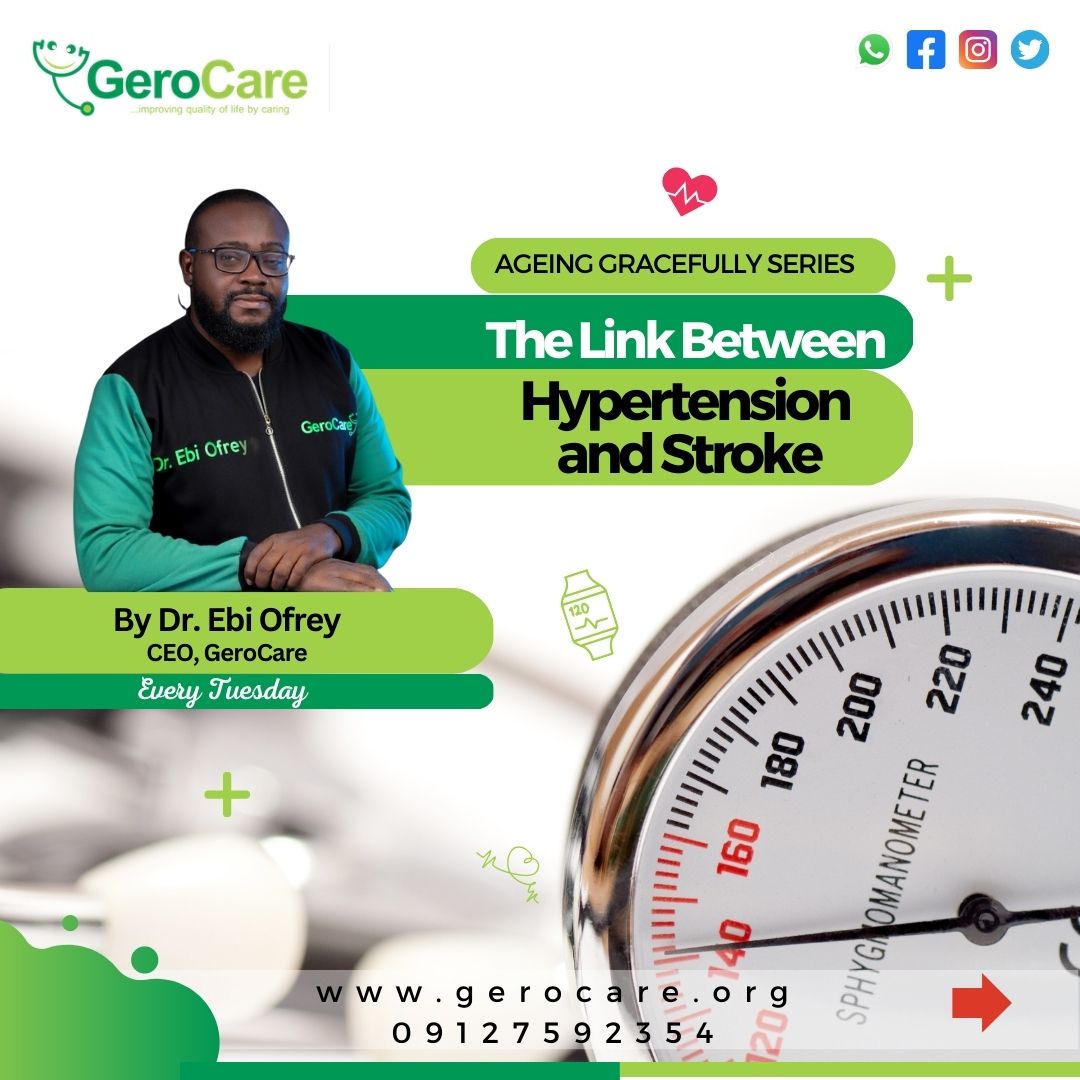By Dr. Ebi Ofrey CEO GeroCare
High blood pressure, also known as hypertension, is a common health problem among seniors. It occurs when the force of blood against the walls of your arteries is consistently too high, putting a strain on your heart and blood vessels. Hypertension is often referred to as the “silent killer” because it often has no symptoms but can cause serious health problems like stroke.
Stroke is a serious medical emergency that occurs when the blood supply to your brain is interrupted or reduced. When your brain cells do not receive enough oxygen and nutrients, they can begin to die, causing lasting damage. There are two main types of stroke: ischemic and hemorrhagic. Ischemic strokes occur when a blood clot blocks a blood vessel in the brain. Hemorrhagic strokes occur when a blood vessel in the brain ruptures or leaks.
Hypertension is a leading risk factor for stroke. Over time, high blood pressure can cause damage to the walls of your blood vessels, making them more prone to blockages or ruptures. This can increase your risk of having a stroke. According to the American Stroke Association, people with hypertension are four to six times more likely to have a stroke than those with normal blood pressure.
Fortunately, there are many things you can do to lower your risk of stroke if you have hypertension. The most important thing is to manage your blood pressure. This means taking any medications prescribed by your doctor and making lifestyle changes to lower your blood pressure.
One of the most effective ways to lower your blood pressure is to eat a healthy diet. This means limiting your intake of sodium and processed foods and eating plenty of fruits, vegetables, and whole grains. You should also try to get regular exercise, such as walking or swimming. Exercise can help lower your blood pressure and reduce your risk of stroke.
If you smoke, it is important to quit. Smoking can cause damage to your blood vessels and increase your risk of stroke. You should also limit your alcohol intake, as drinking too much alcohol can raise your blood pressure.
Managing stress is also important for lowering your blood pressure and reducing your risk of stroke. Activities like meditation, deep breathing exercises, or yoga can help reduce stress.
Finally, it is important to regularly monitor your blood pressure, even if you feel fine. This can help detect any changes in your blood pressure and allow for adjustments to your treatment plan as needed.
In conclusion, hypertension is a leading risk factor for stroke. However, by managing your blood pressure through medication and lifestyle changes, you can lower your risk of having a stroke. If you have concerns about your blood pressure or risk of stroke, talk to your doctor about the best ways to manage your health.
![]()

